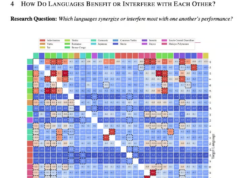
How the TV Show ‘Mr. Robot’ Won the Prize for Hacker Realism
(There’s also the star turn by Rami Malek as young hacker Elliot Alderson; he took home an Emmy for best lead actor in a dramatic series Sunday night. Malek opened his acceptance speech with a callback to one of his character’s first lines: “Please tell me you’re seeing this, too.”)
But the show is also unusually dedicated to getting the details of hacker culture and computer vulnerabilities right. That’s won it a devoted following among people who know more than a little about both subjects — and who are used to seeing cartoonish hacker stereotypes and ludicrous technical jargon in mainstream programs.
Sweating the Small Stuff
“For me the biggest thing was, I watched all of season one and didn’t throw anything at the TV,” said longtime hacker Marc Rogers during a panel discussion that packed a ballroom at the recent Def Con hacker convention in Las Vegas.
Rogers joined the show as one of its hacker consultants for its second season, which wraps up Wednesday night. He’s one of a small group of real-world experts, including computer-security mavens and a former FBI cybercrime specialist, who share the same mission: Keep the hacks realistic while making sure that the show is still good TV.
Because if they don’t, they’re going to hear about it from the real-life hackers.
“It’s insane,” said Kor Adana, a “Mr. Robot” writer who worked as a network security analyst before breaking into show business. “Even if we show part of a screen for a millisecond, It will get screenshotted and it will get dissected and someone will post a really intricate write up about what we’re doing; whether it makes sense or whether we’re just phoning it in.”
Adana, who manages the team of consultants in addition to serving as a writer, said the focus on accuracy has always been part of “Mr. Robot.” The show’s creator, Sam Esmail, dabbled in hacking as a teenager, then saw family members in Egypt use social media and other technology to push for political change during the Arab Spring.
Hacking In Its DNA
Esmail liked the idea of young people changing the world via their superior understanding of technology. That’s more or less what the hacker characters in “Mr. Robot” try to do — though they’re not always successful, Adana said. But Esmail insisted on doing it right.
Adana and another consultant joined the show during the first season, with Adana pitching ideas in the writer’s room. Nobody wanted to see “Mr. Robot” mocked online like two hacking-centric CBS thrillers, “Scorpion” (which features faked-up computer code in its logo) and the now-canceled “CSI: Cyber.”
As with any TV show, though, the story comes first. The consultants brainstorm to create realistic hacks that get Elliot from point A to point B in the story; only then do they write the code that will show up on screens. And while real-life hackers tend to reuse hacks that work, characters on the show need to keep coming up with new ones to keep things interesting.
Next, the consultants work with the props department to make sure the sets feature appropriate hardware and give the code to an animator, who creates the text that actually appears in the show. They take care to ensure the code is typo free, although they do tweak some elements to ensure they’re not providing a “how to” guide for aspiring hackers.
Convincing Hackers
“Seconds of screen time could be hours of discussion,” Rogers said, adding that late night phone calls from Adana to sort out last-minute technical issues aren’t uncommon.
Sometimes hacks are yanked if they can’t be fixed. For example, a ransomware attack originally written into the second season premier was ultimately cut and replaced after consultants decided it wouldn’t really work on a technical level.
Adana and the consultants are also responsible for fleshing out the show’s hacker characters, ensuring that they’re more than quirky, borderline autistic geniuses. Elliot, for instance, is at heart an idealist who wants to change the world for the better, although he’s also a flawed and frequently unstable person who has a complicated relationship with both mainstream society and reality itself.
“I think the young, and kind of angry, rebellious, anti-authority hackers related to him in a way,” Adana said. “He’s idealistic in the same way as a lot of hacktivists (who) want to change the world. They want to make an impact through technology and that’s what he’s doing.”
© -. -.







